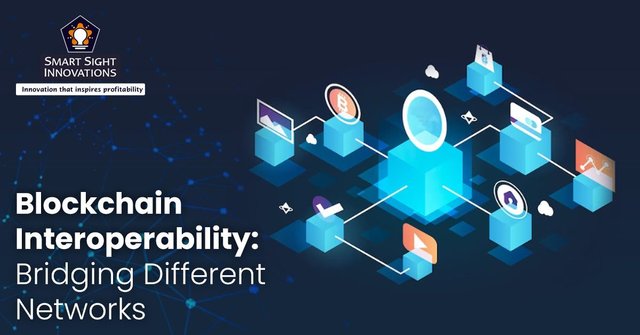As international trade becomes more interconnected, everything will eventually be interoperable.
As blockchain becomes the norm and becomes essential to creating and implementing goods and services, all centralized systems will eventually be referred to as "off-chain layers" for data management.
Onchain integration will include everything you can imagine.

source
People sometimes don't realize that blockchain technology is special because it makes it easy for secondary systems to integrate and adapt while preserving its essential principles.
Your bank must be willing to build the required integration, but it would be simple to route your bank transactions over the blockchain.
You could have all the data produced by your smart home devices on a life chain, but the firm that developed those devices is the only thing preventing you from doing so.
It's a gorgeous fantasy that will only be a reality in a few years, but the future promises the exciting promise of ease in the flow of data with every bit of what we do or engage with.
Even cryptocurrency enthusiasts would be shocked to learn how much value has moved through the blockchain since the creation of Bitcoin, how much has been made for miners and validators, and how much the general public has benefited from the many opportunities available here.
Although speculative investment powers the majority of the ecosystem, with little attention paid to sustainability and revenue, what can be done when we're dealing with a novel kind of system?
Recent articles and tweets have implied that the eagerly anticipated retail is already here, but I'm here to tell you that's not the case. No, retail (the masses) isn't here yet. I know at least ten people who have never made a cryptocurrency wallet, much less signed a transaction.
Although the facts may be discouraging, particularly to individuals who are unduly fixated on short-term growth in numbers, not all adoption must occur immediately; the masses will arrive gradually.
By default, this massive integration marks the beginning of a highly interconnected world in which money and data can travel around the world in a matter of seconds (the internet of value?). This creates economic value both in the short term through direct financial incentives and in the long term through the growth of generated data that artificial intelligence can use.